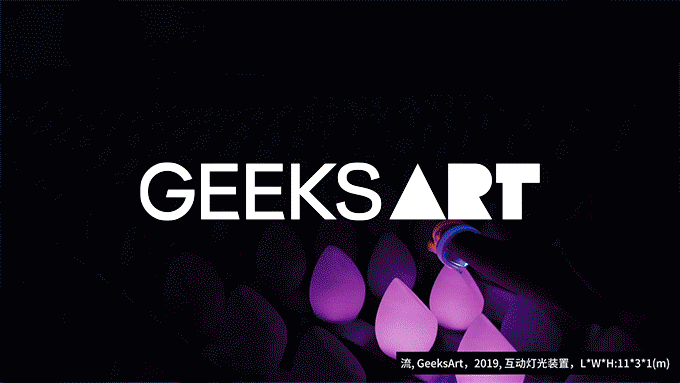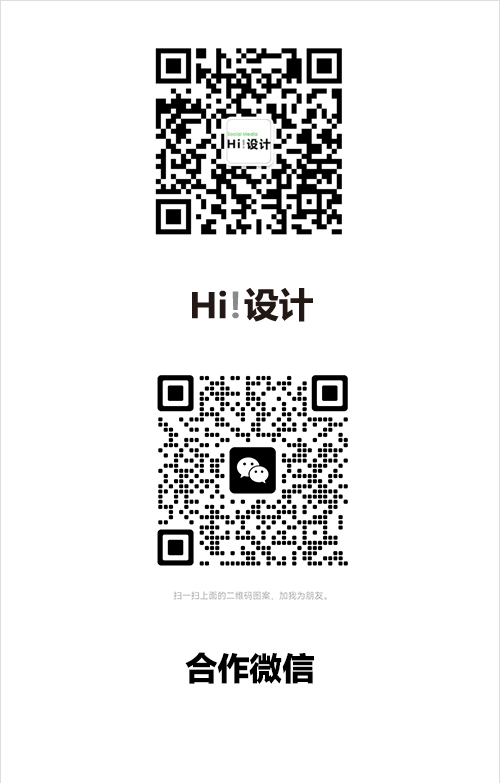创造建筑和视觉的冲突矛盾,再赋予它们合理性
以全局式的重建彻底颠覆陈旧的品牌形象
从根源撬动老品牌的价值
Creating Architectural and Visual Contradictions, and Then Giving Them Rationality
Thoroughly Overturning the Old Brand Image with a Holistic Rebuild
Leveraging the Value of the Old Brand from the Root
如果把入夜的簋街当作一幅卷轴,纵览沿东西向林立的餐饮门头时,所有的目光都不会忽略——通透的玻璃外墙包裹着一个灯光奇幻的建筑盒子,创立近二十年后,独一味以前所未有的品牌形象跻身北京人气最旺的餐饮江湖。
If you imagine the nighttime Guijie Street as a scroll, scanning the east-west restaurant facades, all eyes will undoubtedly catch – a transparent glass exterior enclosing a fantastical light-filled architectural box. Nearly twenty years after its founding, Duyiwei has entered Beijing’s most popular dining scene with an unprecedented brand image.
▲门头Facade
在IN.X屋里门外不拘一格的设计改造中,新东家胡大对独一味寄予的希望也随之实现:作为簋街餐饮多样性拼图中的一片,年轻、开放、独树一帜。
In the eclectic design transformation by IN.X Wu Li Men Wai, the new owner Hu Da’s hopes for Duyiwei have also been realized: as a piece of the diverse dining puzzle on Guijie Street, it is young, open, and unique.
建筑重塑
簋街“独一味”
Architectural Reshaping
Guijie “Duyiwei”
▲吧台等位区Bar and waiting area
得益于相邻的两座建筑共同构成独一味新址,设计师在重建空间时有了施展魔法的先决条件。
Benefiting from the two adjacent buildings forming the new site of Duyiwei, the designers had the prerequisites to work their magic when rebuilding the space.
▲挑空区扶梯连接内部空间Atrium area with staircase connecting the interior spaces
用钢筋和玻璃做建筑骨架勾勒出横竖两个半开放的盒子,透过玻璃能看到简洁的扶梯组织起建筑动线并从内部连通两个空间,同时将食客引向宽敞的屋顶露台——簋街街景在那里尽收眼底。
Using steel and glass as the architectural framework, two semi-open boxes are outlined. Through the glass, one can see the simple staircases organizing the building’s flow and connecting the two spaces from the inside, simultaneously guiding diners to the spacious rooftop terrace – where the street scene of Guijie is fully captured.
▲建筑与环境紧密相融Integration of the building with the environment
当混着神秘气息的未来感灯光从内部照亮整个餐厅时,建筑散发出有别于簋街所有餐厅的荷尔蒙:神秘、自由、有力。但设计更多的深意是:新建筑使独一味和街道最大程度地彼此融合,置身其中的人无时无刻不和环境相拥,走进餐厅的同时,却和街道更近了。这使所有漂浮的、突破性的设计表达都有了一个真切的落脚点,滋养出烟火气。
When the mysterious, futuristic lighting illuminates the entire restaurant from within, the building exudes a unique charm unlike any other restaurant on Guijie: mysterious, free, and powerful. But the deeper meaning of the design is that the new building makes Duyiwei and the street merge to the greatest extent. People inside are constantly embracing the environment, feeling closer to the street even as they enter the restaurant. This gives all the floating, breakthrough design expressions a genuine grounding, nurturing a vibrant atmosphere.
复古未来主义
夜猫出没,自由自在
Retro-Futurism
Night Owls Roam Free
▲1F吧台First floor bar
餐厅内部在设计上与建筑保持着一致的呼吸感,除了灵魂般的二层露台,垂直方向上设计师在U型吧台位置开矩形天窗,倾泻而下的自然光纵贯空间,使中央吧台兼具宴饮活力和自然韵律,流水、景观、植物片段式穿插期间,散座区因此一扫沉闷。
The interior design of the restaurant maintains a consistent sense of breathing with the architecture. Besides the soul-like second-floor terrace, the designer has opened a rectangular skylight above the U-shaped bar, letting natural light pour down and permeate the space. This endows the central bar with both festive vitality and natural rhythm. Interspersed with flowing water, landscapes, and plants, the scattered seating area thus eliminates any dullness.
设计师运用大胆色彩和冷峻的金属材料将空间笼罩在一种复古未来的光彩中。氛围的达成一部分来源于未来主义,另一部分则是机械所代表的现代主义,设计从近一个世纪的美学语言中寻找线索,同时也挣脱了具体的风格范式。将毫不拖泥带水的洁净和抽象赋予金属构件,结合古典奇幻的灯光,复古机械感滑向未来宇宙,自由松弛的晚餐时段是一场视觉和味觉的共同“致幻”。
The designer uses bold colors and cold metal materials to envelop the space in a retro-futuristic glow. The atmosphere is partially derived from futurism and partially from modernism represented by machinery. The design seeks clues from nearly a century of aesthetic language while breaking free from specific stylistic paradigms. Cleanliness and abstraction are imparted to metal components, combined with classical fantasy lighting, creating a retro-mechanical feel that glides towards a futuristic cosmos. The relaxed dinner time becomes a shared “hallucination” of visual and gustatory sensations.
设计师运用大胆色彩和冷峻的金属材料将空间笼罩在一种复古未来的光彩中。氛围的达成一部分来源于未来主义,另一部分则是机械所代表的现代主义,设计从近一个世纪的美学语言中寻找线索,同时也挣脱了具体的风格范式。将毫不拖泥带水的洁净和抽象赋予金属构件,结合古典奇幻的灯光,复古机械感滑向未来宇宙,自由松弛的晚餐时段是一场视觉和味觉的共同“致幻”。
The designer uses bold colors and cold metal materials to envelop the space in a retro-futuristic glow. The atmosphere is partially derived from futurism and partially from modernism represented by machinery. The design seeks clues from nearly a century of aesthetic language while breaking free from specific stylistic paradigms. Cleanliness and abstraction are imparted to metal components, combined with classical fantasy lighting, creating a retro-mechanical feel that glides towards a futuristic cosmos. The relaxed dinner time becomes a shared “hallucination” of visual and gustatory sensations.
▲2F阳光房散座区与露台相连Second floor sunroom seating area connected to the terrace
▲盥洗室Restrooms
陶土色在立面大量使用,怀旧气息和自然属性使它成为不二之选,在二层露台,清爽的户外家具及吧台和它一起营造出阿拉伯沿海度假感,傍晚霓虹炫彩,不乏排队只为登高小酌一杯的年轻人,烤鱼这个看似式微的品类被包容性极大的空间体验巧妙化解。
Terracotta color is extensively used on the facade, making it the perfect choice for its nostalgic and natural attributes. On the second-floor terrace, refreshing outdoor furniture and the bar create an Arabian coastal vacation feel. In the neon-lit evenings, young people line up just to have a drink and enjoy the view. The seemingly declining grilled fish category is cleverly resolved by the highly inclusive space experience.
非露天区划分为四间VIP包房,从下仰望,走廊屋顶打开圆形天窗,让人联想到太空舱飞离地球的瞬间洒下机械的冷光。
The non-open area is divided into four VIP rooms. Looking up from below, the corridor roof opens with circular skylights, reminiscent of the moment a space capsule leaves Earth, casting mechanical cold light.
包房内,不可思议的真实与虚幻混合。Inside the private rooms,unbelievable mix of reality and fantasy
研究者们早已洞悉,人们对于奇幻的内在渴望,远胜于复杂的叙事。味觉漂浮其中,与空间氛围发生着微妙呼应:总与过去相连,又时刻想象着未来。
Researchers have long understood that people’s inner longing for fantasy far exceeds that for complex narratives. Taste floats within, subtly resonating with the spatial atmosphere: always connected to the past, yet constantly imagining the future.
▲2F VIP包房 Second floor VIP private rooms
策略为先,设计为后
Strategy First, Design Second
在灯箱和空间角落不时露头的一只黑猫是设计师为餐厅设计的“夜猫”IP,每到日落,北京烤鱼鼻祖接管年轻人的摸鱼时间:温柔澎湃、自在微醺。
The black cat that occasionally appears in lightboxes and space corners is the “Night Owl” IP designed by the designer for the restaurant. Every sunset, the ancestor of Beijing grilled fish takes over the leisure time of young people: gentle and surging, free and slightly tipsy.
空间是一个核心锚点,由此出发,屋里门外这次的设计策略是全局式的重建:空间视觉、品牌LOGO、IP……改造旨在彻底颠覆陈旧的品牌形象,从根源激活老品牌的价值。
The space is a core anchor point. From this starting point, Wu Li Men Wai’s design strategy this time is a holistic rebuild: space visuals, brand logo, IP… The transformation aims to thoroughly overturn the old brand image, activating the value of the old brand from the root.
设计师犹如空间剧目的导演,创造冲突和矛盾,又赋予它们合理性,最终带来一个与街区紧密结合的建筑空间;一个抓住年轻客群的视觉体验;一段自在包容的餐饮时间,它们共同达成了品牌和设计者的初心,让独一味不负其名。
The designer, like the director of a spatial drama, creates conflicts and contradictions and then gives them rationality. This ultimately brings an architectural space closely integrated with the neighborhood, a visual experience that captures the young clientele, and a comfortable and inclusive dining time.
项目信息——
项目名称|独一味·烤鱼
项目地点|中国 北京
项目面积|608㎡
室内设计|IN.X屋里门外设计
设计主创|吴为
设计团队|程路、贾琦峰、刘晨阳、张顺
室内陈设|宋江丽、应哲光
照明设计|元入科技 Uniimport
视觉输出|正是飞扬 Fayoung Design
项目摄影|郑焰
内容策划|NARJEELING那几岭
项目策划|楽品牌策略机构
Project Information——
Project Name: Duyiwei Grilled Fish
Project Location: Beijing, China
Project Area: 608㎡
Interior Design: IN.X Space Design
Lead Designer: Wu Wei
Design Team: Cheng Lu, Jia Qifeng, Liu Chenyang, Zhang Shun
Interior Decoration: Song Jiangli, Ying Zheguang
Lighting Design: Uniimport Technology
Visual Output: Fayoung Design
Project Photography: Zheng Yan
Content Planning: NARJEELING
Project Planning: Le Brand Strategy Agency

















































